

Registered Charity No 1075342

Reviews of Meeting Points Presentations
October 2013 -
Meeting photos: Anthony Smith & John Hale
Hydraulic fracturing
(Fracking) for shale gas
October 2013 Meeting
Review by Jacqueline Sims
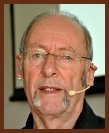
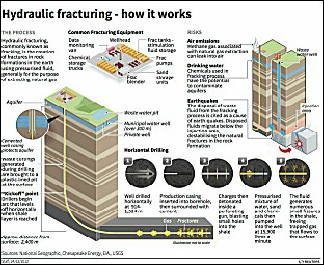
Charles Miller
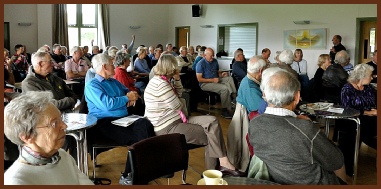
The jam-packed hall was proof that no-one needed convincing about the relevance of this issue to all Dorset residents. On the strength of over 25 years in the oil industry, Charles stepped us through a series of closely-reasoned arguments covering all aspects of the fracking process and its implications for the environment, local habitats and agriculture, and for human communities.
He stressed the many disadvantages of the process often underplayed by commercial interests promoting it. These include the scale and extent of the underground fracking wells; the toxic by-products and their immediate and latent health effects; the poor track record in waste management and safe disposal; the major impact on local water tables; and the often low level of extraction achieved in relation to the total amount of gas present in shale.
Despite these pitfalls, government licenses have already been granted for fracking in Dorset, although precise sites have not yet been identified. Moreover, no comprehensive regulatory framework covering hydraulic fracturing has yet been developed and put in place in this country.
If, as appears to be the case, fracking is a costly and environmentally damaging process with little prospect of making a major contribution to alleviating the energy crisis, why is the government supporting the initiative? Charles suggests that fracking may represent an investment opportunity providing short-term rewards to the already rich, rather than a move towards much needed sustainable energy policy. As the world will enter negative oil productivity next year (consumption will exceed production globally) the need to move away from fossil fuels and develop sustainable, renewable sources of energy is imperative.
Royal Navy Presentation Team
November 2013 Meeting
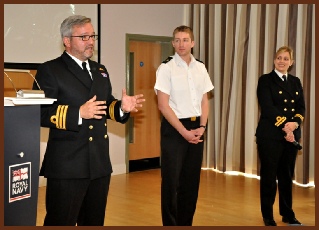
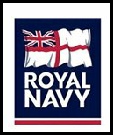
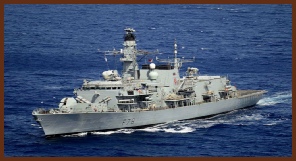
In these times of rising tensions around the world and our changing defence priorities, Submarine Commander Jim Perks with Cassie Staveley and David Edgar of the Royal Navy Presentation Team explained the role of the Royal Navy in present times.
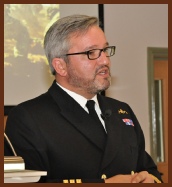
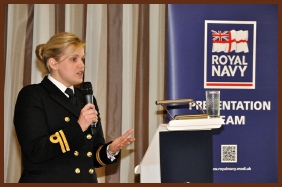
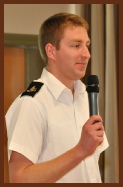
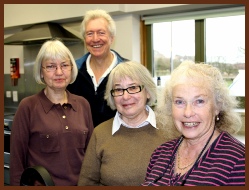
The Meeting Catering Dept !



If ever a man was happy in his job then that man is Paul Morton. By his own admission he is doing his dream job at the Charity: Birds of Poole Harbour. This is an organisation set up to educate people, particularly the young, on the variety of bird life on and around the harbour. To this end they lead guided walks at regular intervals, pointing out birds in residence as well as those passing through at different seasons. They also organise free boat trips around the harbour for local schoolchildren, so that they can learn about the wildlife at first hand.
Report by Ann Churchill
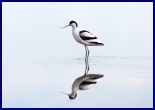
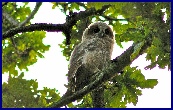
Paul told us that they work closely with the National Trust, Dorset Wildlife Trust and the RSPB to boost the profile of Poole Harbour and to help people get the most out of their visits, whether they are locals or holidaymakers. They have a website (see below) which has an interactive map showing public access points and giving information about the various sites of
interest. They have also set up a live webcam which can show immediately any bird activity over a wide area, especially the lagoon at Brownsea.
Not only do they encourage people to watch and enjoy the birds but they also engage in surveys and research and then publish their results. For instance they did a survey of water rails and established
that there had been 201 pairs around the harbour during the period of their survey, which is far more than anyone expected. They also ring birds so that they can monitor their movements and it was quite unexpected to find that one of the best ringing sites for chiff-chaffs and willow warblers is a narrow channel somewhere behind the Fleetsbridge Retail Park, which is an outlet from a sewage works (treated I hasten to add).
One might be forgiven for thinking that it was gulls, gulls and more gulls around the harbour but we learned that a number of rarer birds also pass through and Paul communicated his elation at spotting a semi palmated sandpiper poking around in the mud. So from roseate terns to marsh harriers, long tailed ducks to brent geese, there is plenty to see and the man who is happy in his job would be even happier if he thought he had inspired more of us to go and have a look.
Further Information: www.birdsofpooleharbour.co.uk
John Hale, Bob Dukes, John England
The Story of the Royal Naval Cordite Factory
February 2014 Meeting
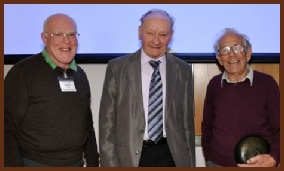
Film maker and Purbeck U3A committee member, John Hale, with presenters John England and Dr Bob Dukes recently made a documentary DVD about the well known RNCF establishment near Wareham.
They gave a presentation of an edited version of their DVD to the Meeting Points audience of over 100 and explained interesting facts about the buildings, people and equipment found there during and between the wars for the production of Cordite.
Nearly 100 years have passed since the building of this enormous factory on 450 acres of land at Holton Heath and the many thousands who
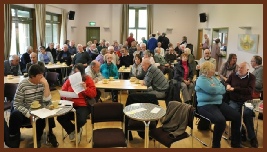
worked there were controlled by the Official Secrets Act with even their own families having little idea of what their relatives were actually working on, or the dangers involved.
Some of the mysteries of what went on behind the “tall black fence” (which still exists) were revealed – and the use to which the land has been put in modern times.
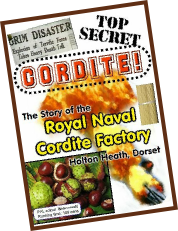
For more details about the Cordite Factory
please go to: www.RNCF.co.uk
please go to: www.RNCF.co.uk
For more details about the DVD
(left) please CLICK HERE
(left) please CLICK HERE